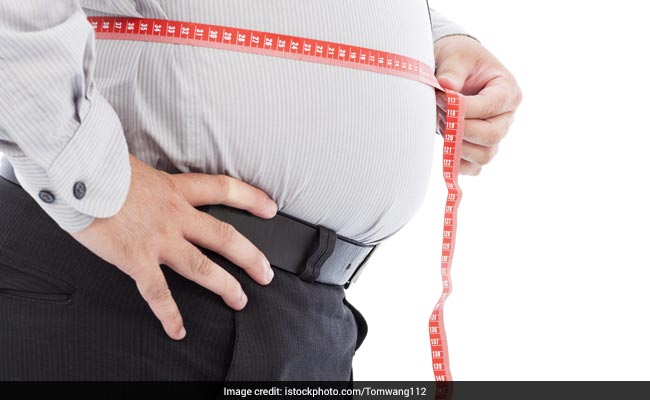Learn how to identify the difference between bloating and fat.
Learn how to identify the difference between bloating and fat.
Blog Article
Recognizing the Difference In Between Bloating and Fat: an Important Guide for Digestive Health
Recognizing the difference between bloating and excess body fat is important for any individual worried about digestion wellness. While bloating presents as a short-lived and usually uncomfortable problem, normally connected to dietary routines or digestion disturbances, body fat stands for a more permanent adjustment in one's physique. This distinction is not simply academic; it lugs considerable implications for how people approach symptoms and therapy. As we discover the subtleties of these 2 sensations, the importance of identifying their corresponding causes and monitoring methods comes to be progressively noticeable. What are the functional steps one can require to address these concerns successfully?
Specifying Bloating and Fat
Bloating and fat are 2 distinctive physiological sensations that can considerably impact a person's convenience and body photo. Bloating is typically a short-term event and can fluctuate throughout the day, usually settling with way of living modifications or clinical treatments.
On the other hand, body fat is a much more permanent and secure part of human physiology, largely acting as an energy reserve and playing important duties in hormonal agent law and insulation. Body fat is categorized into two kinds: subcutaneous fat, which lies simply underneath the skin, and natural fat, which borders internal organs. While excess body fat can lead to wellness issues, it is important for total bodily features.

Root Causes Of Bloating

In addition, food intolerances, such as lactose or gluten intolerance, can lead to bloating when the body battles to refine specific compounds - fat and bloating. Eating too swiftly or consuming carbonated beverages can likewise exacerbate the issue, as these practices introduce excess air right into the gastrointestinal system
Lifestyle factors, including anxiety and lack of exercise, can further contribute to bloating by affecting digestive tract mobility. Certain medical problems, such as irritable digestive tract syndrome (IBS) or stomach obstruction, might also bring about persistent bloating. Understanding these causes is essential for successfully handling and minimizing bloating, allowing people to make educated nutritional and way of living options that support their digestive system health.
Signs And Symptoms of Bloating vs. Fat
Differentiating in between the symptoms of bloating and excess fat is crucial for understanding one's body and dealing with pain effectively. Recommended Reading Bloating generally offers as a sensation of fullness or pressure in the abdomen, usually accompanied by noticeable distension.
In contrast, excess fat shows up in a different way. While it might add to a feeling of thickness, it typically does not produce the intense pain related to bloating. Instead, excess fat tends to accumulate slowly, causing a change in physique and size gradually. People might see a rise in body area, particularly around the waist, but this does not generally existing with the immediate sensations of fullness or distension.

Recognizing these differences is essential. While bloating is usually momentary and linked to nutritional variables or gastrointestinal concerns, excess fat indicates a much more persistent condition requiring lifestyle modifications. Recognizing these signs and symptoms encourages individuals to seek ideal options customized to their specific issues relating to digestive wellness and body structure.
Taking Care Of Bloating
Efficient monitoring of bloating requires a multifaceted strategy that attends to both nutritional selections and lifestyle behaviors. First, it is crucial to recognize and remove details foods that might cause bloating, such as those high in fiber, gluten, lactose, or certain fermentable carbs (FODMAPs) Maintaining a food diary can assist identify these triggers and overview modifications.
Including smaller, a lot more constant dishes as opposed to huge ones can likewise decrease bloating, as it relieves the digestive system process (bloating vs fat). Staying well-hydrated is important, as sufficient liquid consumption aids digestion and aids stop irregularity, which can add to bloating
Furthermore, engaging in regular exercise promotes stomach mobility and reduces bloating. Straightforward workouts, such as walking or yoga exercise, can properly ease discomfort. Mindful her response eating methods, such as eating slowly and eating food extensively, may further boost digestion and limit air ingesting.
When to Look For Aid
Identifying when to look for clinical aid for bloating is vital, as consistent or extreme symptoms might show an underlying wellness concern. If bloating is come with by extra worrying signs such as substantial stomach pain, unusual weight-loss, rectal bleeding, or constant nausea or vomiting and throwing up, it is imperative to speak with a healthcare specialist. These signs may recommend problems such as short-tempered digestive tract syndrome, intestinal obstruction, and even much more serious problems like cancer.
In addition, if bloating lingers in spite of nutritional modifications or non-prescription treatments, it warrants further investigation. Individuals with a history of intestinal conditions need to be specifically watchful, as their danger for problems might be higher. Additionally, if bloating happens following the consumption of certain foods, it might show food intolerances or allergic reactions that require dig this dietary adjustments or testing.
Conclusion
In recap, differentiating between bloating and excess body fat is crucial for digestive health and general health. Bloating, a temporary problem frequently connected to dietary aspects and digestive system concerns, contrasts dramatically with the steady accumulation of body fat.
Report this page